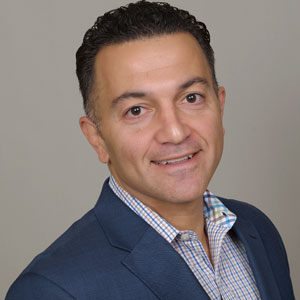by Clode Moradi, MSPFP, CFP®

I’m often asked about acceptable amounts of debt people should carry, and how a person would know when they are in a good position to buy a house? Being in position to efficiently fund your goals takes planning, not just on the funding side, but also on making sure the identified goals are what you really need, to enhance your quality of life. Having some debt is not necessarily a bad thing. Debt can be used as a very powerful tool or it can be used dangerously. What you want to be careful of is to make sure you don’t use debt as a way of living beyond your means. To make sure you can afford the debt you take on, I recommend running a detailed cash flow as a starting point. After the cash flow is analyzed, you and your financial planner can take a look at your current ratio’s and have a discussion on what would be appropriate for your scenario. You also need to gauge how those ratio’s may change before and after funding your goals.
With that in mind, here’s a basic overview of different debt ratio’s that we commonly look at. However, it should be noted that I never like to use generic numbers because we don’t work with generic people. Everyone is unique and everyone’s lifestyle risks are different. What may be acceptable for one client, might not be acceptable for another. Regardless of that, here’s a nice starting point.
Break Down Debt
When looking at a client’s debt, we want to break down that debt into a few different categories. Those categories are consumer debt, home related debt, and overall debt.
Consumer Debt
This is all debt payments, except house payments. Your consumer debt should not exceed 20% of your net income.
Home Related Debt
This is usually going to be your largest payment and the one related to purchasing a home. Debt payment costs for your house should not exceed 28% of your gross income. This includes your mortgage (principal and interest), property tax, and home insurance.
Overall Debt
Overall debt ratio is very important. The reason for this is that it brings together consumer debt and home related debt, so that the combination of those two does not exceed the desired ratio. In most cases, overall debt should not exceed 36% of gross income.
Note: Keep in mind, there’s a difference between your net and gross income and we don’t count retirement plan deferrals as part of net income.
Cash Flow Analysis
In Financial Planning, the most efficient way to analyze the impact of debt is through what we call cash-flow analysis. Cash-flow analysis is the foundation of a financial plan. It analyzes all the sources that create the inflows of income, as well as all the liabilities and expenses that contribute to the outflow of that income. The accuracy of cash-flow analysis is crucial because a lot can get lost and missed due to differentiating taxation characteristics, as well as certain expenses that are not normally accounted for.
Without creating and analyzing an accurate cash-flow, it would be difficult to lay down a path to achieving financial goals. How can one develop strategies to succeed if there is a lack of accurate information on the inflow of money coming in, and the outflow of that money allocated to cover all debt and expenses?
Through analyzing cash-flow, you should be able to find out if your current rate of savings is aligned with achieving your goal of having a down payment within your desired timeline. If it is not, pay attention to how much discrepancy exists between the current savings and the required savings?
If there is a discrepancy, develop a strategy to increase the rate of savings or adjust the timing of the goal. This can be done through many avenues. Often times, when combined with comprehensive financial planning, the extra needed savings can be identified through strategies that may be implemented in other planning areas. Once the opportunity is uncovered, the savings can then be used towards the goal of having a down payment and the timing of that goal may go back on track.
Do it Right
So, if you’re thinking about buying a house make sure to take the proper steps and plan out your approach. Analyze your cash-flow and consider all the extra expenses, benefits, tax considerations, and necessary emergency accounts so that you are prepared. Working with a Certified Financial Planner™ will allow you to go into this phase of your life knowing that you are prepared and able, so that you don’t lose sleep at night wondering how you’re going to pay your next mortgage payment. After all, the purpose of buying a home is usually to establish a sense of ownership and enhance quality of life, not the other way around.
There are many other factors to consider before making the move to purchase a home. We address these factors throughout our process, as part of a financial plan. If you have any questions or would like to come in for a detailed consult on personal financial planning, please call to make an appointment. We have already started clients on planning for their 2019 goals.

Clode Moradi, MSPFP, CFP®
Clode is an independent Certified Financial Planner™ and has a Post-CFP® Masters Degree in Advanced Personal Financial Planning, from Kansas State University, one of the most prominent financial planning universities in the nation. He graduated at the top of his class with a 4.0 GPA and was awarded a nomination and acceptance into the honorary society of Phi Kappa Phi to represent the importance of higher education in the Financial Planning industry.
Clode specializes in taxation, retirement, and investment planning as they relate to personal goals and quality of life. He also holds a Graduate Level Certification in Financial Therapy, and has written extensive research articles on financial topics such as goal based portfolio construction, how to define “financial success”, money psychology and its manifested human behaviors, and various other topics related to finance, taxation, and human behavior as they relate to one’s quality of life. Clode also has a Bachelor’s Degree in Personal Financial Planning, where he graduated Summa Cum Laude from Franklin University of Ohio. He is an active member of the Financial Planning Association and Financial Therapy Association.
Clode is the founder of Brilliant Financial Strategies, LLC. He started in the financial industry more than 20 years ago and created BFS as a platform to offer financial planning at a much deeper level. Clode feels that Financial Planning needs to break out and surpass the status quo. “Our job is to help clients make use of their financial potential to build a meaningful life”.
He enjoys spending quality time with his wonderful family. Clode’s hobbies include saltwater fishing and Brazilian Jiu-Jitsu. Clode is the creator of a group called Kool Kids Fish that introduces kids and their parents to the hobby of fishing, as a means of spending quality time together. Clode also coaches a kids Jiu-Jitsu Competition class at Gracie Barra La Canada-Flintridge, where he works with kids and teens that compete in Jiu-Jitsu tournaments nationally. One of his most valued personal accomplishments is receiving his brown belt in Brazilian Jiu-Jitsu from ADCC world champion Orlando Sanchez of Gracie Barra.
Clode’s approach to life, money, and financial planning is to create quality of life through balance and honest self-reflection. He believes that abundance can only have value when there is balance in one’s household, family, and internal being. He brings this approach to all aspects of life.
Disclaimers
This article is for reference and informational purposes only and does not provide tax, legal, or accounting advice. It is for guidance only and not a substitute for the user seeking personalized financial planning and professional advice. It is not intended to provide, and should not be relied on for, tax, legal or accounting advice. You should consult your own financial, tax, legal, and accounting advisors before engaging in any transaction.

